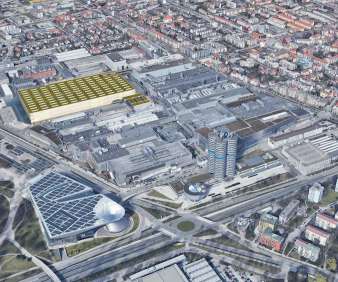BMW investing €400M in new vehicle assembly at Munich plant as part of shift to electromobility; engine production being concentrated at Steyr and Hams Hall
Green Car Congress
NOVEMBER 19, 2020
The combustion engines with four, six, eight and 12 cylinders produced there will be manufactured at the company’s locations in Steyr in Austria and Hams Hall in the UK going forward. By the end of 2022, each of our German plants will be producing at least one fully electric vehicle. Rendering of the new assembly hall.













Let's personalize your content